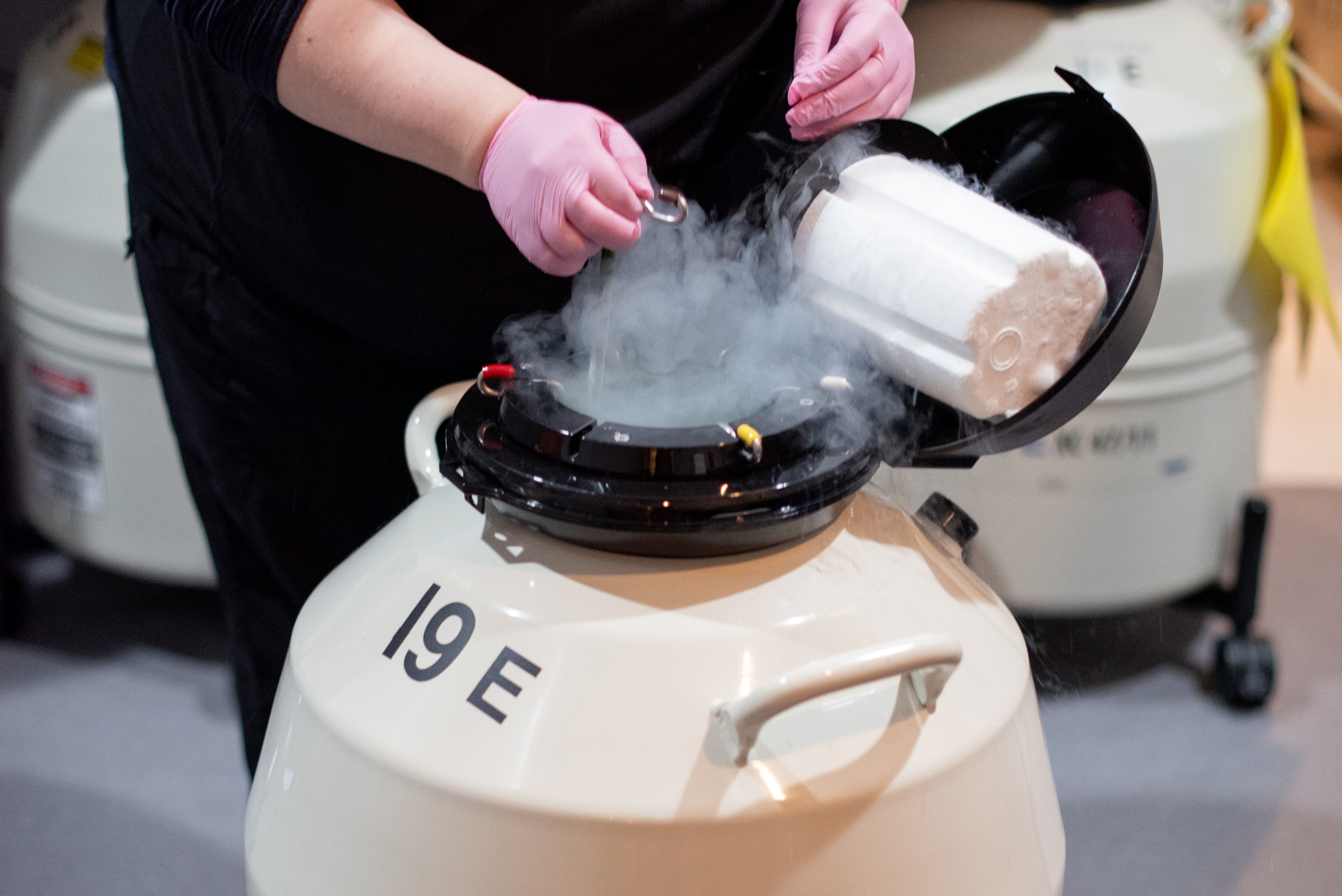There should not be pressure to create your bundle of joy, and individuals and couples should be able to conceive and bring your baby into the world when you're ready to do so.
Over the years, egg freezing has gained popularity and the process has become more and more evolved. As many women today focus on driving a successful career and plan to bring your kids into the world later in life, egg freezing can help you achieve this, extending your fertility for years. Here is everything you need to know about egg fertilization, to help you decide to freeze your eggs.
What is egg freezing? (Oocyte Cryopreservation)
Egg freezing, also known as oocyte cryopreservation, refers to the process of extracting and freezing a woman's eggs to stop their biological clocks and preserve their reproductive potential for when they’re ready. This allows women to potentially extend their fertility into their late 30s to 40s, while keeping their healthiest and strongest eggs for fertility treatment like IUI or IVF.
There is no negative impact when you store frozen eggs for longer durations, and you will achieve the best results if you freeze your eggs in your mid-to-late twenties. You should not delay longer than necessary if you want to freeze your eggs, as younger eggs are healthier and more likely to survive the freezing process.
How long can you keep eggs frozen?
Forever! Frozen oocytes can be stored for up to 55 years, or until you’re ready to start your path to parenthood.
Potential candidates for egg freezing
There are numerous reasons why the oocyte cryopreservation process may be considered. Traditionally, good candidates for egg freezing include individuals experiencing:
- Career and educational plans. If you wish to pursue your degree or a demanding career, then you can opt for freezing your eggs. By doing so, you ensure that the eggs are healthy when you want to use them.
- Personal circumstances. If you want to have a child with a partner, but you still don't have one yet, you can freeze your eggs to use in the future when you get a partner.
- Cancer treatment. Cancer treatments can interfere with your fertility. Reproductive cancer can lead to the removal of your ovaries. Egg freezing can help reduce the effects of cancer treatment on fertility.
- Infections and other health concerns. There are numerous problems that can affect your fertility. A condition like endometriosis cause uterine tissue that grows outside your womb. Freezing eggs gives you hope of conceiving if you have a serious illness, such as premature ovarian failure due to chromosomal abnormalities or an ovarian disease that increases the risk for ovary damage.
The egg freezing process explained
The specialist assesses your ovarian reserve to determine the potential yield of the oocytes before the stimulation cycle. The assessment includes pelvic ultrasound and blood tests and helps in determining the required dose of medication. Ovarian stimulation is done using injectable hormonal medications. The eggs are assessed to determine their maturity.
The doctor begins by inserting a needle in the ovarian follicles to retrieve the eggs. Throughout the procedure, the doctor uses an ultrasound. In the rare case that the eggs are not visible, then the doctor may use abdominal surgery. With abdominal surgery, the doctor uses a small incision where a needle is inserted to get the eggs.
After retrieving the eggs, the freezing takes place as soon as possible. Since the eggs will still be full of water, it is not advisable to freeze them immediately. The doctor uses a special solution to inject the egg before they are frozen.
When you’re ready to thaw frozen eggs
When you are ready to use the frozen eggs, the eggs are placed in a warming solution and assessed. The doctor checks the eggs that have survived the freezing process, and they are fertilized with intracytoplasmic sperm injections (with your chosen sperm source, whether that’s a partner or a donor).
The fertilized egg is grown in culture for several days until it becomes ready to be transferred to the intended mothers through a procedure known as an embryo transfer. Then, intended parents will undergo a 2-week-wait until they can take a blood pregnancy test to determine if the cycle was successful!

Learn about your fertility preservation options
Egg freezing allows individuals and couples plan for their future families on your own terms, without pressure or fear that you'll 'run out of time.' If you're considering egg freezing, we encourage you to learn more about your fertility preservation options.
If you're ready to start planning for your family, please get in touch and we'll cover everything you need to know!
Note: This is not intended to be a substitute for professional medical advice, diagnosis or treatment. Information provided is for general educational purposes only and is subject to change without notice. Speak to your doctor directly with any questions you may have regarding a medical condition. Any information contained herein does not replace any care plan as determined by a physician.
You May Also Like
These Stories on In-Vitro Fertilization


.png)